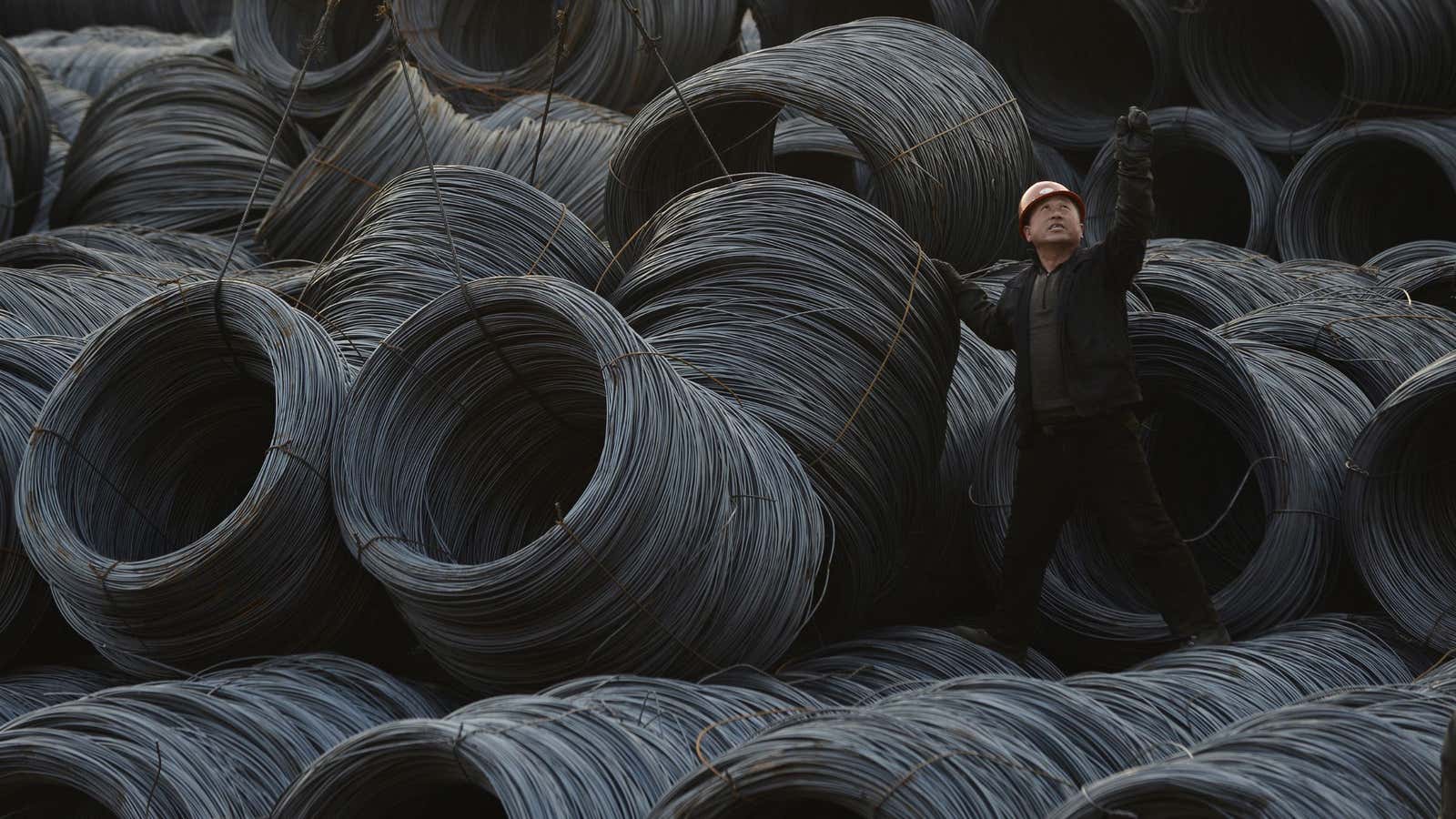China’s leaders know that if they’re going to avoid some sort of debt crisis, they need to cut their reliance on investment to drive growth. But not too much. A too-sharp fall would risk crippling the economy—something premier Li Keqiang vowed to avoid when he told London crowds Friday that the Chinese economy won’t face a “hard landing.”
The descent may already be underway, though, based on the latest findings from China Beige Book, a survey-based research firm. Not only did businesses in nearly every sector slash investment in Q2, but growth in consumer retail spending slowed as well.
Many analysts attribute slowing economic growth to falling real estate investment, which is dragging down overall investment growth.
However, in CBB’s quarterly survey of Chinese businesses, only half of its respondents said they were increasing investment, down from 58% in Q1 2014—the sharpest drop in 10 quarters of CBB polling. And oddly enough, along with construction, real estate was the only sector in the Chinese economy in which businesses had upped their investment since Q1.
The good news is that this suggests the housing market’s rapid deterioration might finally be stabilizing. But it also means that will benefit the overall economy less than is widely assumed.
Plus, the factors weighing down investment appear to be much broader-based than simply a shaky housing market. CBB’s surveys of bankers, executive,s and businesses suggest that it’s not government-led tightening that’s pushing down capital spending—it’s sluggish business activity.
During the quarter, non-bank borrowing costs—including shadow banking rates—fell to an average of 6.3%, down from more than 8% in Q1, while bond yields averaged 5.8%, a one-percentage-point decline. Both types of credit are now cheaper than official banking rates of around 6.9%. CBB has tracked this sort of “loan inversion,” which usually happens during times of financial stress, in specific regions before. But this is the first time the trend was evident throughout the country.
In other words, what’s hurting growth isn’t a tighter supply of loans supposedly resulting from government policy, but rather eroding demand for credit. Only 26% of companies said they tried to get loans, down from 32% in Q1 2014. Almost none of the bankers CBB interviewed reported that their business was coming from new clients.
Falling investment alone wouldn’t be that alarming if retail and services were picking up instead. However, retail revenues dropped unexpectedly in Q2, with more businesses also reporting falling prices.
The fact that China’s service sector appears to have been hardest hit by slowing growth is particularly worrying. Not only do services support more jobs than many other sectors, but many economists assume a structural shift (pdf, p.3) of China’s economy away from industry and toward services will gradually buoy the overall economy, helping the country wean itself off debt. While other indicators suggest that the sector began growing again in May (pdf), nearly a quarter of the service businesses CBB surveyed reported declining revenue, with media, restaurants, and business services suffering the most.
